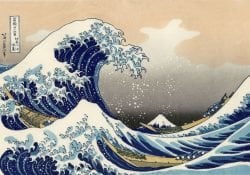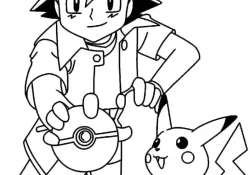Yoshida Akiko (吉田亜紀子) is a Japanese singer-songwriter, who is better known by her stage name Kokia (stylized as KOKIA). She is best known for the songs "Arigato..." (which reached number one on the Hong Kong music charts when Sammi Cheng made a version cobrir hers) and "The Power of Smile". It is also known for anime soundtracks and electronic games, such as:
- Ai no Melody/Chōwa Oto from the movie Gin-iro no kami no Agito;
- Follow the Nightingale from Tales of Innocence;
- Tatta Hitotsu no Omo i from the anime Gunslinger Girl: Il Teatrino;
We are talking about her today in this article at the request of a friend who is trying to bring her to Brazil for a tour. for this we ask you to follow your social networks at the end of the article to show the interest of us Brazilians in your visit.
Índice de Conteúdo
KOKIA's career
Childhood and early career – Kokia was born in 1976 and raised by her mother. She started playing the violin when she was two and a half years old, but preferred the family piano. Often, instead of playing with toys, Kokia preferred to play the piano. She remembers putting picture books on the music stand and creating songs that represented the scenes. When she was ten years old she went, along with her sister Kyoko to the United States to study at Summer Music School, which she did again four years later. high school, I studied music and opera, which he later specialized in at Toho Gakuen Daigaku. At university, a classmate delivered a demo tape that Kokia recorded for a music executive. So, she was signed by Pony Canyon and started her singing career in 1998 by participating in the album Brothers, with the songs “Aishiteirukara” (愛しているから?) and “You”, while still at university. She created her stage name by reversing the syllables of her name. The same year she recorded was "For Little Tail", used as the opening theme for the game Tail Concerto and later as a secondary track on the 2010 single "Road to Glory". After four singles, she released her debut album Songbird in 1999.
Although none of their singles have so far reached a very high placement on the Japanese music charts—”Aishiteirukara” was ranked 99 on the Oricon—“Arigatō…” (ありがとう…?) was a hit in Hong Kong. The song was ranked third in Hong Kong's Most Popular International Song Awards (香港国際流行音楽大賞) in 1999. In 2000, artist Sammi Cheng released a cover version of the song in Hong Kong from her eponymous album (多謝). ) and she became a hit.
Victor Entertainment
After the release of her debut album, she left Pony Canyon. His first work after leaving the label was a participation, with five songs, on the album Kanata Made (彼方まで?) by Ryuichi Kawamura, the vocalist of the band Luna Sea, released in 2000. The disc was released by Victor Entertainment, which started her relationship with the label through which, in 2001, she released three singles: “Tomoni”, “Tenshi” (天使?) and “Say Hi!!”. The following year, she released her second album, Trip Trip, the first to be produced by herself.
In 2003, she released the single “Kawaranai Koto (Since 1976)”, which took her to the “top 50” of the Oricon charts, reaching number 47. His biggest hit, however, was “The Power of Smile”, which gained notoriety for promoting the Kao brand, peaked at #15 on the Oricon music chart and was certified gold by the RIAJ. The album on which he was included, Remember Me, also entered the Oricon "top 20". She released Uta ga Chikara in 2004, which included the song "Yume ga Chikara" which was used as a song to encourage participation by the band. Japan at the 2004 Summer Olympics. In 2006, he put together his best songs on the album Pearl: The Best Collection. Aigakikoeru: Listen for the Love was released the same year in France; its release in Japan took place in 2007. In 2008, the singer released the albums The Voice, Fairy Dance: Kokia Meets Ireland and Christmas Gift.
In the year 2009, Kokia released Kokia Infinity Akiko: Balance and Coquillage: The Best Collection II. Real World, released in 2010, reached number 44 on the Oricon music chart, being their eighth best album in terms of sales. In the same year, she released the cover-only album, Musique a la Carte. In 2011, he released the album Moment and in 2013, the Where to Go My Love?.”
media
If you want her to come to Brazil, we ask you to like the fanpage below:
Fanpage - https://www.facebook.com/Kokia-277594399358556/
survey form
HelloProject Group Fanpage
https://www.facebook.com/HelloProject-169714576889731/
Below are some videos for you to know her:





